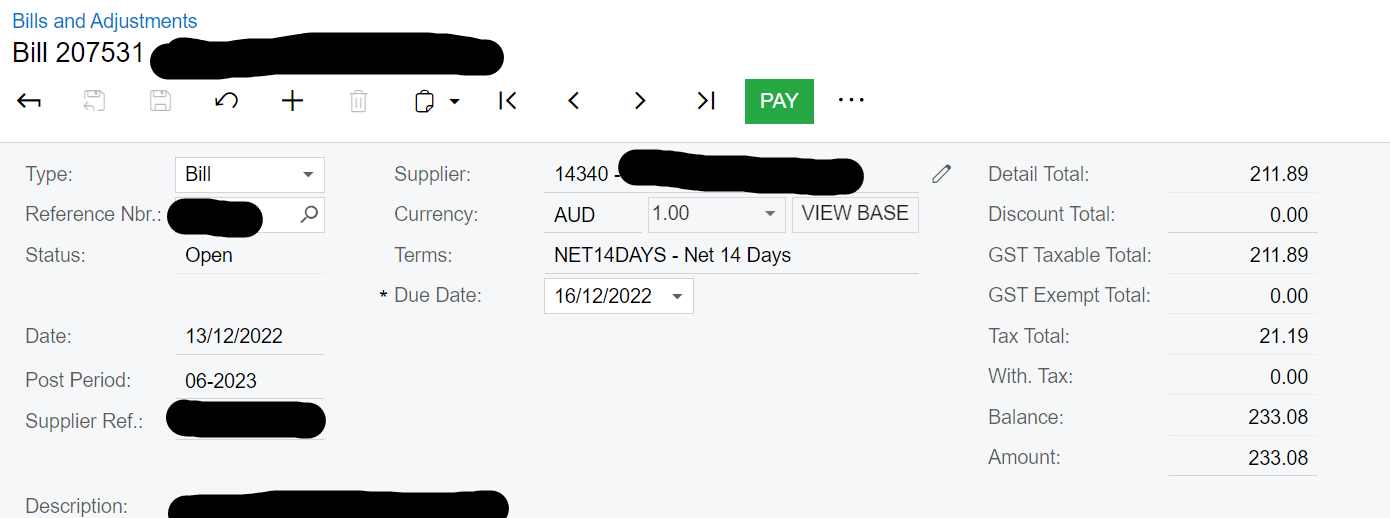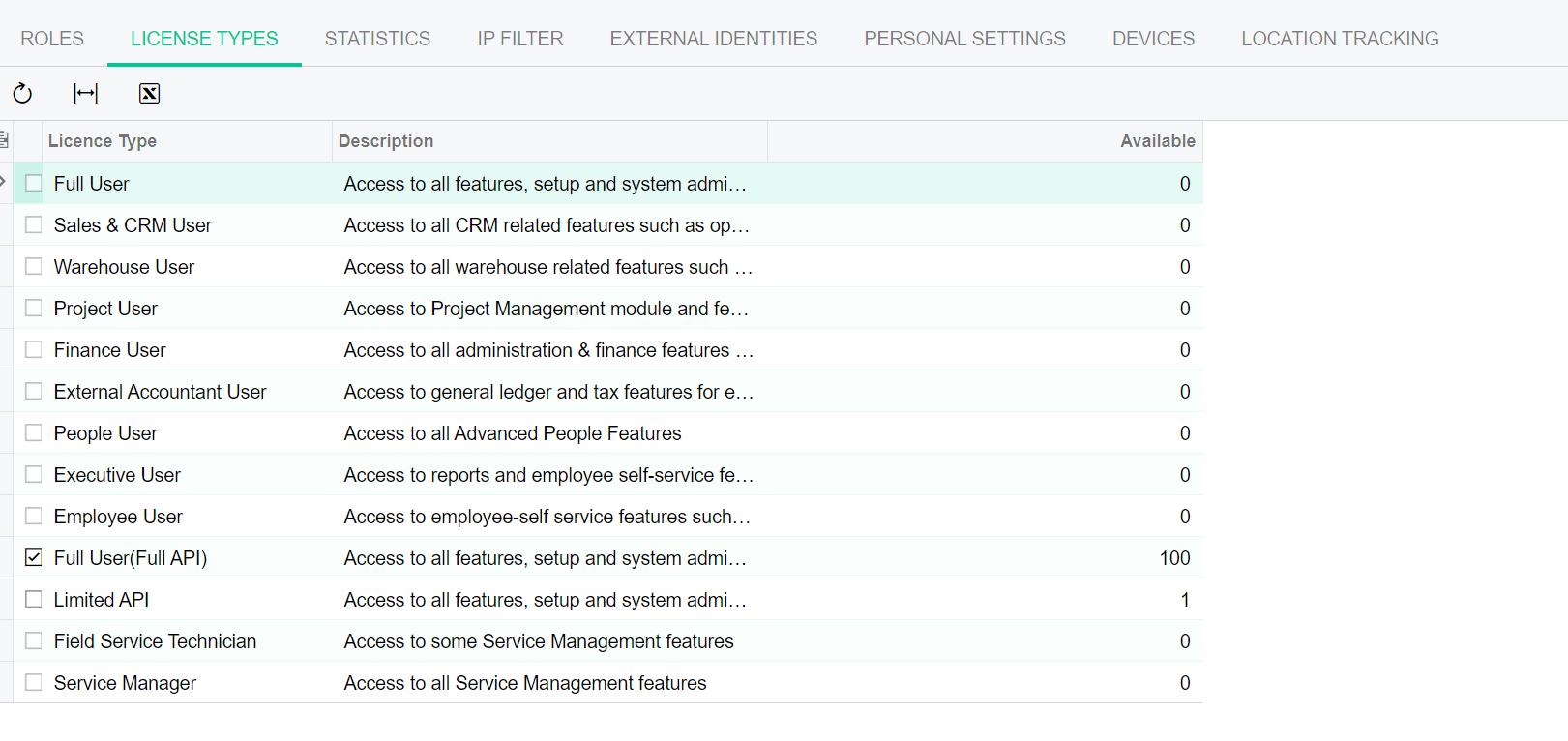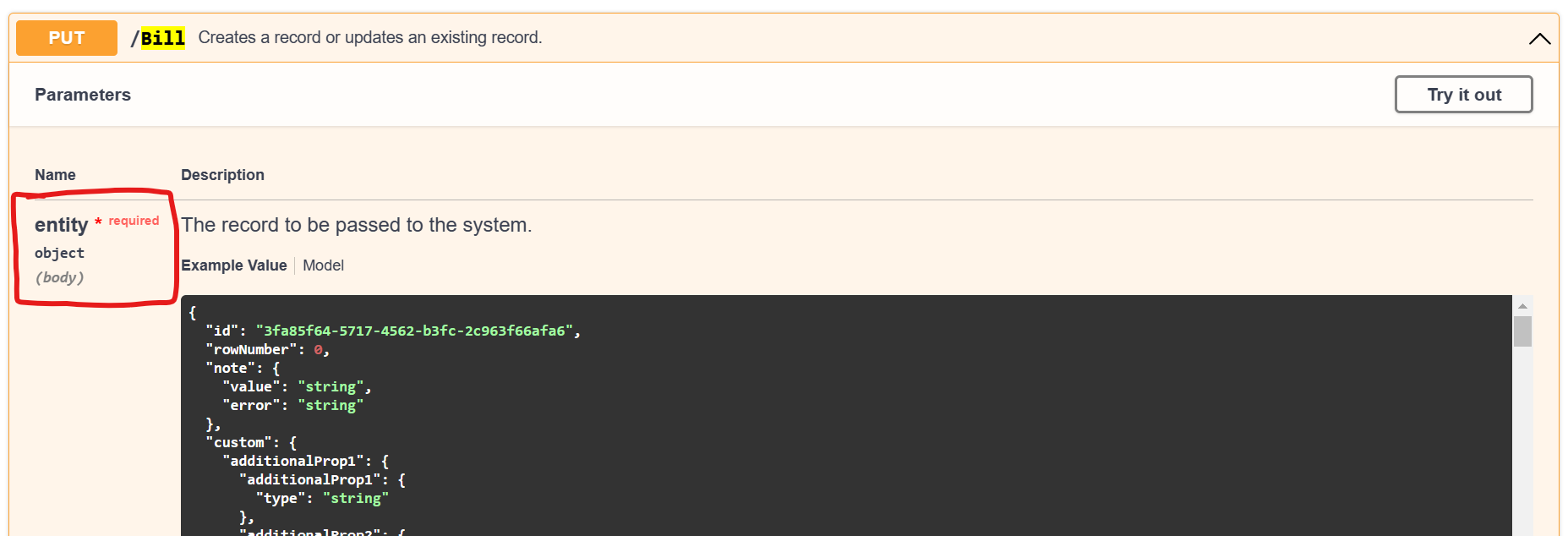I’m attempting to create a Bill via the API - https://xxxxx.myobadvanced.com/entity/Default/20.200.001/Bill
{
"Entity": {
"Type": {
"value": "Bill"
},
"BranchID": {
"value": "MAIN"
},
"DueDate": {
"value": "2023/01/31T00:00:00+00:00"
},
"Vendor": {
"value": "14340"
},
"VendorRef": {
"value": "14340"
},
"LocationID": {
"value": "MAIN"
}
}
}Response
{
"id": "60793d30-6698-ed11-ab3d-023a8f428f42",
"rowNumber": 1,
"note": null,
"error": "'VendorLocationID' cannot be empty.; 'VendorLocationID' cannot be empty.; VendorLocationID: 'VendorLocationID' cannot be empty.",
"Amount": {
"value": 0.0
},
"ApprovedForPayment": {
"value": false
},
"Balance": {
"value": 0.0
},
"CashAccount": {},
"CurrencyID": {
"value": "AUD"
},
"Date": {
"value": "2023-01-20T00:00:00+00:00"
},
"Description": {},
"DueDate": {
"error": "'Due Date' cannot be empty."
},
"Hold": {
"value": false
},
"LastModifiedDateTime": {
"value": "2023-01-20T02:00:19.8832635+00:00"
},
"PostPeriod": {
"value": "072023"
},
"ReferenceNbr": {
"value": "<NEW>"
},
"Status": {
"value": "Balanced"
},
"TaxTotal": {
"value": 0.0
},
"Terms": {
"error": "'Terms' cannot be empty."
},
"Type": {
"value": "Bill"
},
"Vendor": {
"error": "'Vendor' cannot be empty."
},
"VendorRef": {
"error": "'Vendor Ref.' cannot be empty."
},
"custom": {}
}Questions:
- Why am I seeing an error for DueDate, Terms, Vendor and VendorRef when the request has a value?
- What is VendorLocationID referring to on a Bill? It’s not defined in Swagger and doesn’t seem to be visible in the Bill UI.
Best answer by anthonykeller79
View original










